Indigenous Health Services
Indigenous Health & Medicine Team
In an effort to improve quality of care, foster inclusivity, and promote a culturally safe environment at the Brant Community Healthcare System, the Department of Hospital Based Medicine has introduced the physician-led implementation of a Division of Indigenous Medicine.
In alignment with BCHS’s Strategic Plan, its mission and values, and in response to feedback from Indigenous patients and communities, we work collaboratively with leadership, staff, and physicians to improve the Indigenous patient experience at BCHS and advance the ideals of cultural safety therein.
Michelle Bomberry
Bringing over 20 years of invaluable experience within the health, justice, and education sectors, Ms. Bomberry contributes her extensive knowledge, Indigenous network, and leadership skills as the Manager of Indigenous Navigation at BCHS.
Ms. Bomberry is from the Cayuga Nation, Six Nations and Turtle clan. She joins us from the Indigenous Advanced Education Skills Council, where she was a Quality Assurance Advisor. Before her tenure at BCHS, Michelle held planning and leadership roles at Six Nations Polytechnic and Six Nations of the Grand River Elected Council.
As a lifelong learner, she is currently completing her doctorate in land-based education at Brock University. She also obtained a Bachelor of Arts, Honours in Sociology at Brock University. Ms. Bomberry is also an active Grand River Post-Secondary Education Board member.
Michelle has consistently demonstrated a strong commitment to operational excellence and cultivating a collaborative and inclusive Indigenous culture throughout her career. She balances her career with her two children and actively volunteers in the Six Nations community.
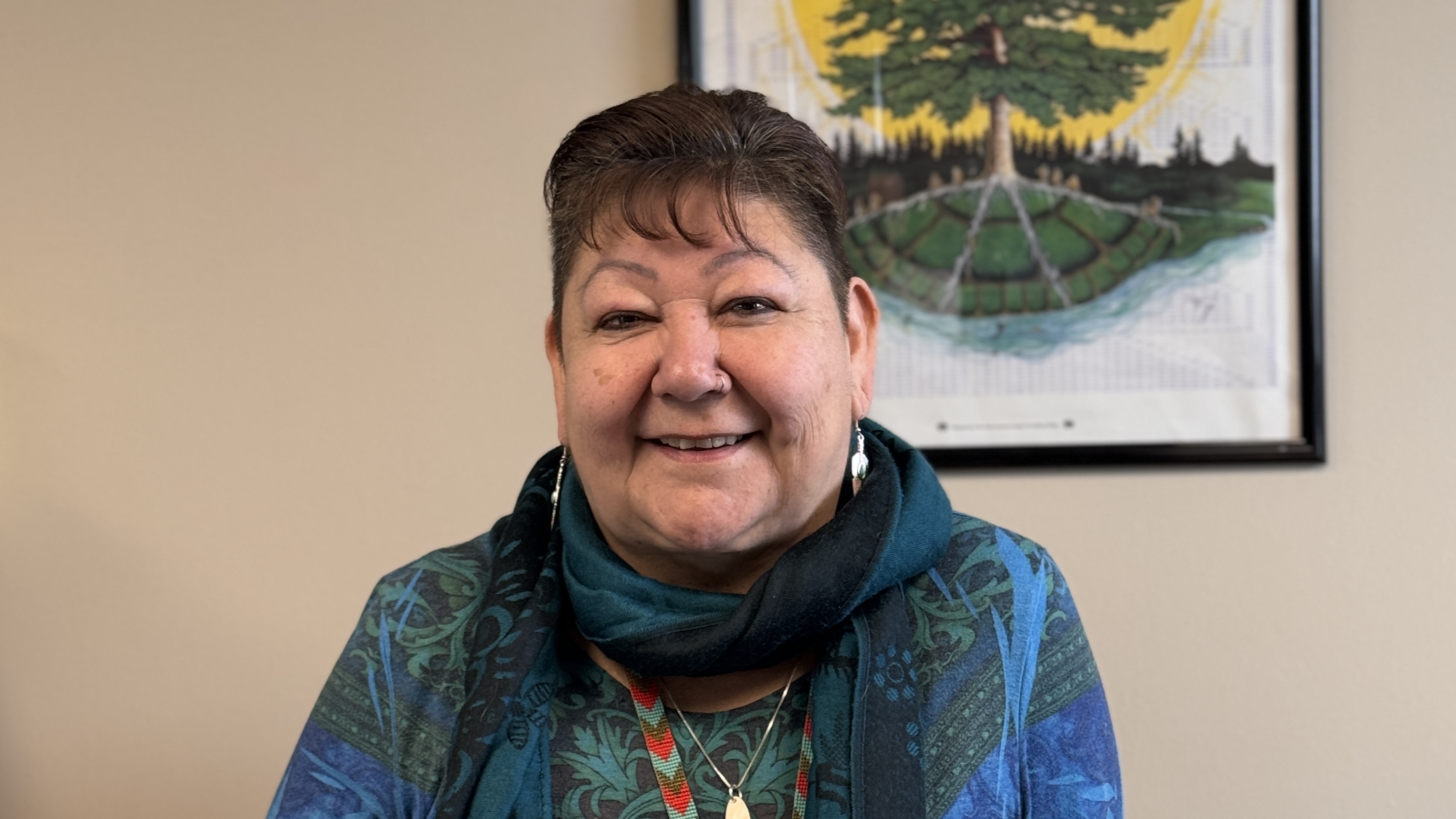 Dr. Karen Hill
Dr. Karen Hill
Dr. Karen Hill is a Mohawk physician from Six Nations of the Grand River Territory. Her passion is to see Traditional Indigenous Knowledge return to the center of life and healthcare for Indigenous people across Canada.
In 2015, Dr. Hill became the first recipient of the Thomas Dignan award for Indigenous Health conferred by the Royal College of Physicians and Surgeons. In the same year, she also received The College of Family Physicians Excellence Award for leading the way in Indigenous collaborative care in primary practice. Also, in 2016, she was honored by McMaster University with a Community Impact Award.
Dr. Hill continues to practice consultative medicine at Six Nations and is the physician lead for the Indigenous Medicine Service at BCHS.
Two Row Medicine Podcast | Apple Podcasts Two Row Medicine Podcast | Spotify
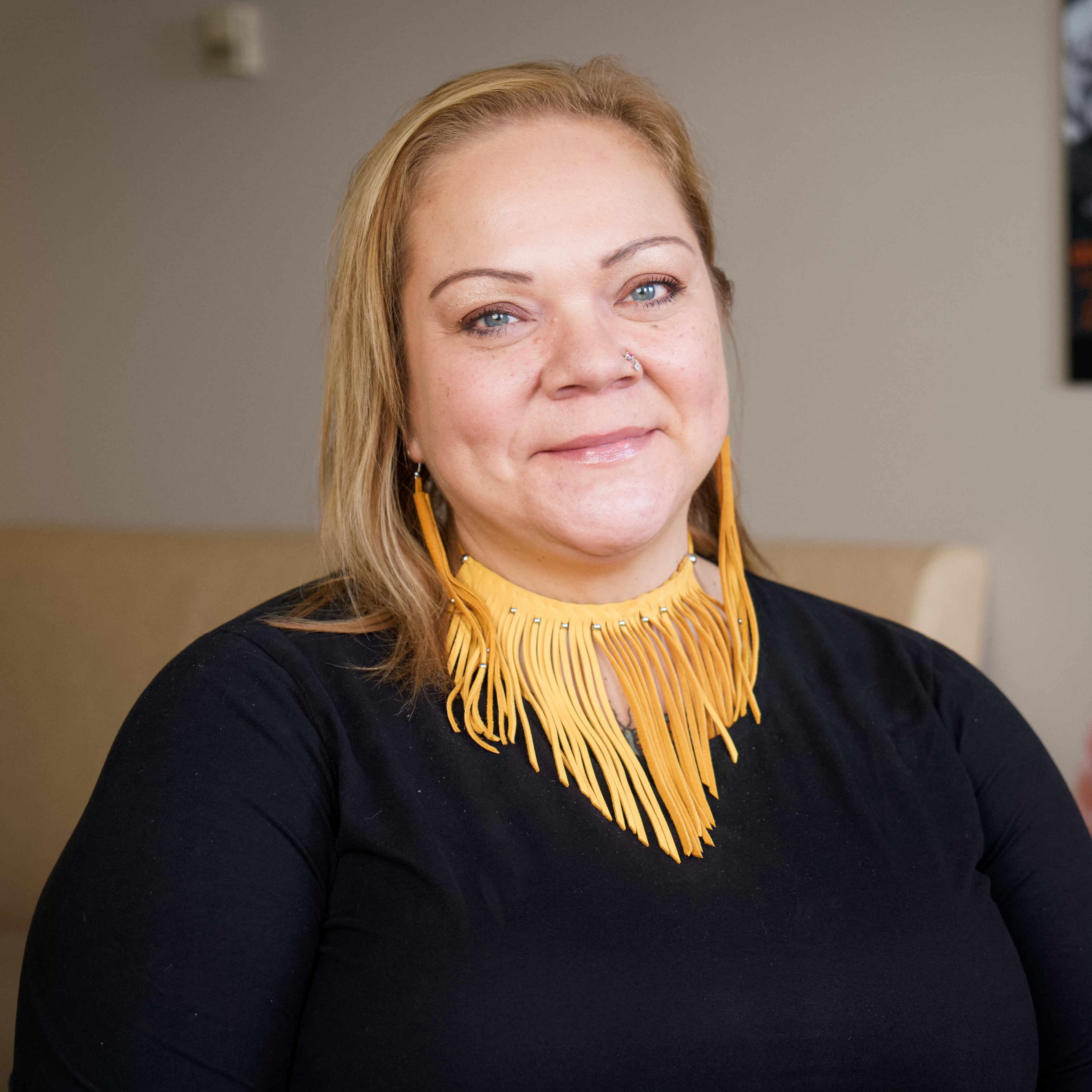
Stephenie Rowe | Indigenous Patient Navigator
Stephenie comes to us from the Juravinski Cancer Centre where she held the position of Indigenous Project Coordinator for the Ontario Health – Cancer Care Ontario regional program.
Previous to that position she worked for several years as an Indigenous Patient Navigator with De Dwa Da Dehs Nye>s Aboriginal Health Centre. Stephenie has also held the position of Client Care Assistant with the former CCAC for the Hamilton Brant Haldimand Norfolk region.
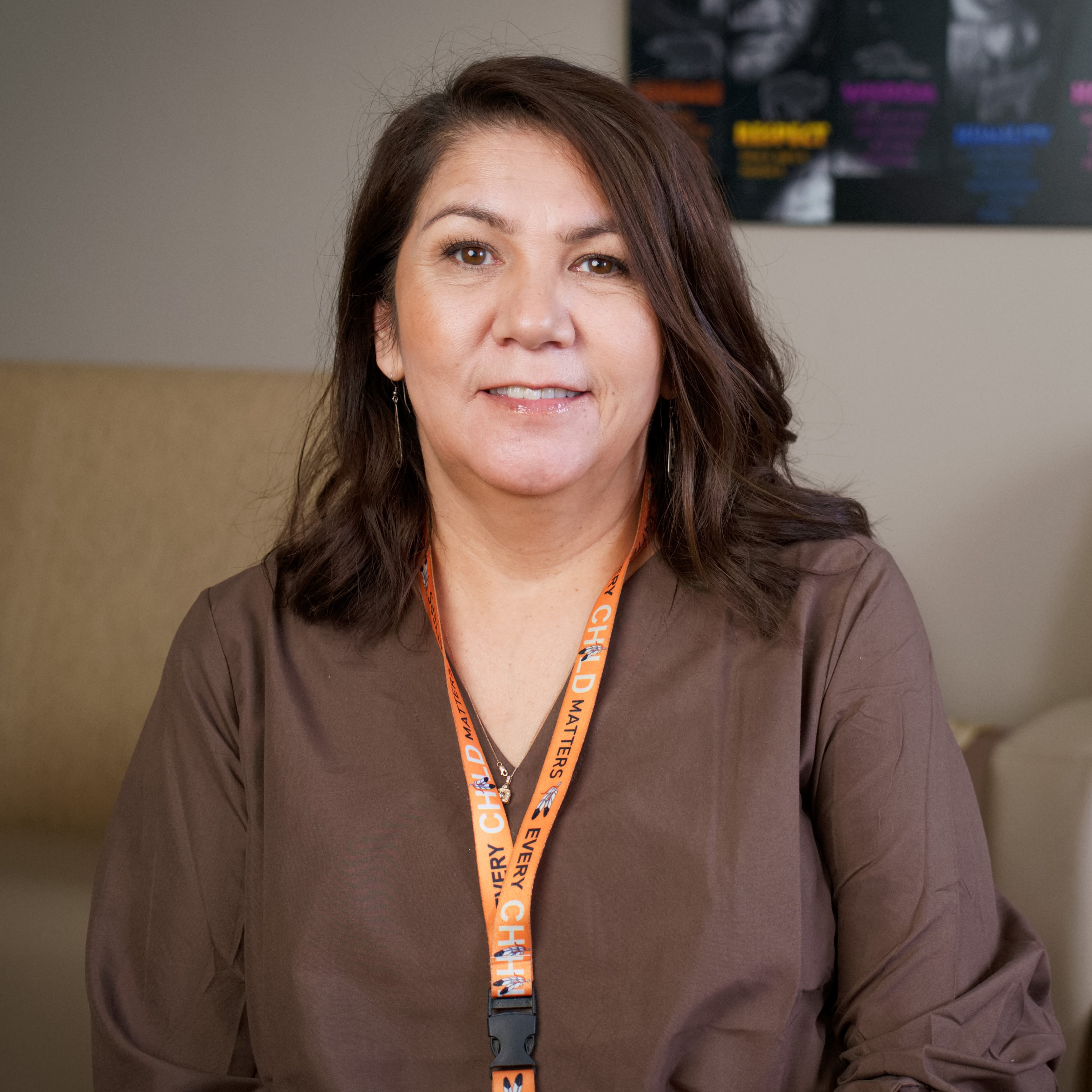
Colleen Montour | Indigenous Patient Navigator
Colleen Montour is a new casual navigator on our team but continues to provide MRI technologist services in our BCHS Diagnostic Imaging department. She has extensive experience as an MRI technologist and is an advocate for self-determination in health care for Indigenous people.
Colleen has built strong relationships and extensive networks in the Indigenous community through her work to promote health careers and health system improvements.
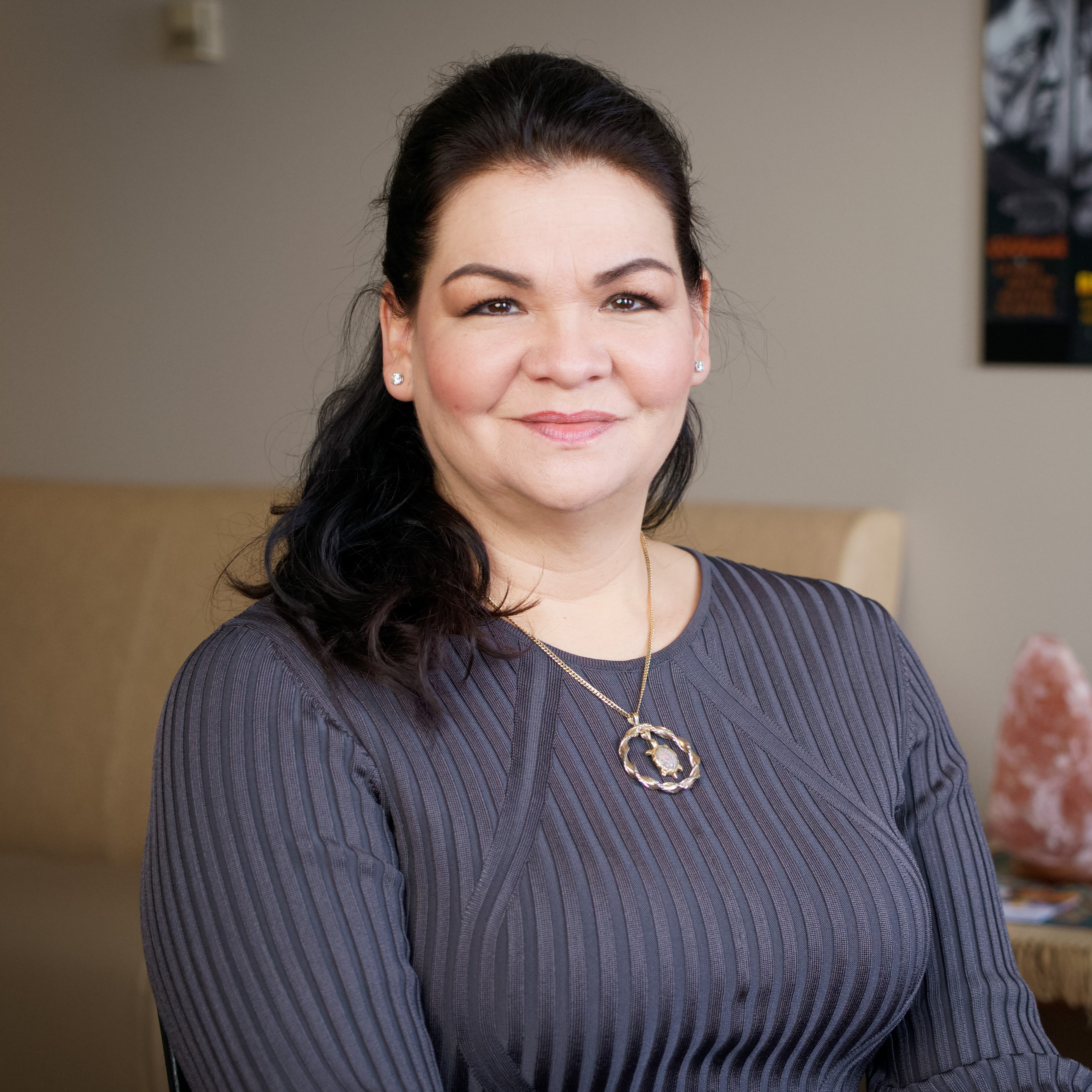
Michelle Jonathan | Indigenous Patient Navigator
Michelle Jonathan is a new casual navigator on our team but continues to provide Nuclear Medicine technologist services in our BCHS Diagnostic Imaging department. She has extensive experience as a Nuclear Medicine technologist in both Hamilton and Brantford as well as working within the Indigenous community on health system transformation.
Michelle is a compassionate advocate and support for Indigenous people accessing Western health care services.
To access these supports and services, please speak to a member of your health care team or you can self-refer by using one of the following: please call 519-751-5544 ext. 4561 or email IndigenousNavigation@bchsys.org
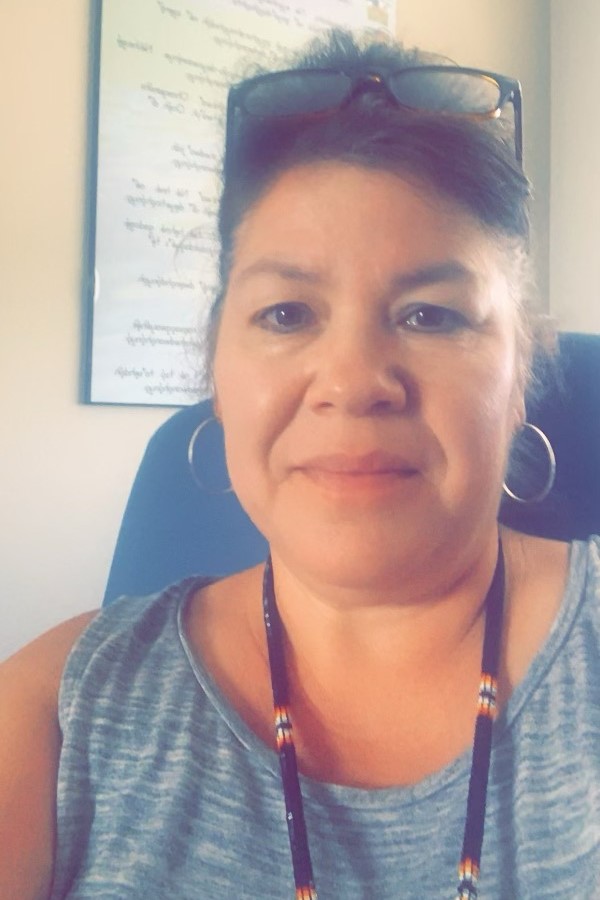 Tara Miller
Tara Miller
Tara Miller is Mohawk, Turtle Clan, from Six Nations of the Grand River. As the Indigenous Patient Navigator with the De Dwa da dehs nyes> Health Centre Brantford site, Tara services the Brant/Haldimand area. Tara can assist patients to achieve or maintain Physical, Mental, Emotional and Spiritual wellness and can offer support to patients and their families in hospital, home and the community.
The Indigenous Patient Navigator supports individuals in their plan of care as well as connecting to resources during their healing journey.
To connect with the Indigenous Patient Navigator, please contact:
Tara Miller:
Phone: (519) 750-4323 | Email: TMiller@dahac.ca.
To access these supports and services, speak to a member of your health care team (nurse/doctor/therapist) or you can self-refer by calling 519-751-5544 ext. 4561 or email IndigenousNavigation@bchsys.org
Indigenous Family Space
Brant Community Healthcare System has created an Indigenous Family Space, located on Floor A1, Room 117B. It is a place where patients and families can gather in a culturally safe space and practice traditional healing.
Indigenous Education, Safety, and Allyship
BCHS is committed to the support and promotion of Indigenous Cultural Safety throughout our communities. Please find below educational resources on how to support cultural safety and learn how you can become an ally.
The Indigenous Allyship Toolkit: A guide to honouring culture, authentic collaboration and addressing discrimination, has been prepared by the Hamilton Niagara Haldimand Brant Indigenous Health Network in partnership with the Hamilton Niagara Haldimand Brant Local Health Integration Network (HNHB LHIN) to support health care providers in addressing inequities.
Recognizing there are many existing resources available on this subject created by elders, knowledge keepers and experts, this toolkit is a compilation of these resources and reflection exercises to deepen understanding and provide practical techniques to aid in your journey of self-awareness and allyship.
This toolkit is intended to provide essential resources that will inspire settlers to advocate for social justice for Indigenous people and to appropriately act upon anti-Indigenous racism.
University of Alberta's Faculty of Native Studies offers a free 12-lesson Massive Open Online Course (MOOC), which explores Indigenous histories and contemporary issues in Canada. From an Indigenous perspective, this course explores key issues facing Indigenous peoples today from a historical and critical perspective highlighting national and local Indigenous-settler relations.
Cancer Care Centre lists cancer resources to support First Nations, Inuit, Métis, and urban Indigenous communities and organizations in Ontario.
The National Inquiry investigates the systemic causes of all forms of violence against Indigenous women and girls, including sexual violence. We must examine the underlying social, economic, cultural, institutional, and historical causes that contribute to the ongoing violence and particular vulnerabilities of Indigenous women and girls in Canada.
The mandate also directs us to look into and report on existing institutional policies and practices to address violence, including those that are effective in reducing violence and increasing safety.
MMIWG Information Final Report: Volume 1a Final Report: Volume 1b
Dr. Amy Montour's Two-Eyed Seeing video presentation highlights a number of key messages that reflect our current healthcare system:
- Truth is a necessary step in reconciling relationships between Indigenous & non-Indigenous peoples
- The sociopolitical history of Canada has had a direct impact on the wellbeing of Indigenous peoples
- Two-eyed seeing acknowledges that both Indigenous & non-indigenous worldviews are important in healthcare
A “dish with one spoon” was often mentioned by Indigenous peoples while making treaties with one another to avoid violent conflict. The “dish” represents the land that is to be shared peacefully and the “spoon” represents the individuals living on and using the resources of the land in a spirit of mutual co-operation.
Subsequent Indigenous Nations and Peoples, Europeans and all newcomers have been invited into this treaty in the spirit of peace, friendship and respect.
The Haudenosaunee see the Two Row Wampum as a living treaty; a way that they have established for their people to live together in peace; that each nation will respect the ways of the other as they meet to discuss solutions to the issues that come before them.
Orange Shirt Day happens every year on September 30th and honours all the Indigenous children that attended residential schools across Canada. It is an opportunity to educate, remember, and reflect on the tragedy of residential schools and the lasting impact they have had on Indigenous cultures, survivors and their families.
Indigenous Community Resources
To visit the website of any of the external organizations listed below, please click on the name of the organization.
Mental Health Services in Brantford & Kitchener
217 Terrace Hill Street, Unit B24
519-720-9922
Non-Insured Health Benefits Approved
Six Nations of the Grand River
Community Living Six Nations “Ronatahskats” | 519-445-4870
Ganohkwa'Sra Family Assault Support Services | 519-445-4324
Iroquois Lodge | 519-445-2224
Ogwadeni:deo – Child Welfare Agency | 519-445-1864
Qualia Counselling Services | 519-445-1929
Six Nations Child & Family Services Programs | 519-445-0230
Six Nations Child & Youth Health Team | 519-445-4983
Six Nations Diabetes Wellness Program | 519-445-2226
Six Nations Family Health Team | 519-445-4019
Six Nations Health Promotions | 519-445-2809
Six Nations Healthy Babies & Healthy Children Program | 519-445-4922
Six Nations Home & Community Care | 519-445-0077
Six Nations Housing | 519-445-2235
Six Nations Justice Department | 226-227-2192
Six Nations Medical Transportation | 519-445-0410, 226-387-2435
Six Nations Membership | 519-445-4613
Six Nations Mental Health & Addictions | 519-445-2143
Six Nations Community Paramedic Program | 519-750-3908
Six Nations Public Health | 519-445-2672
Tsi non:we ionnakeratstha Six Nations Birthing Centre | 519-445-4922
1745 Chiefswood Road,
Ohsweken, ON, N0A 1M0
(519) 445-2418
Social & Health Services Department - Community Health Program | 905-768-0141
MCFN EarlyON Child and Family Program | 365-323-4932
MCFN Family Support Unit | 905-768-1181
MCFN Healthy Babies Healthy Children | 905-768-1181
Brantford Region Indigenous Support Centre | 519-304-7400
Indian Residential School Survivors Society | 1-800-721-0066
The National Residential School Crisis Line | 1-866-925-4419
Residential School Resolution Health Support Program | 1-888-301-6426
Kids Help Phone | call 1-800-668-6868 text 686868
Six Nations Crisis Services (24/7) | 519-445-2204
Six Nations Crisis Services Toll Free | 1-866-445-2204
Canadian Mental Health Association | 519-752-2998
Crisis Services | 519-759-7188
Crisis Services Toll Free | 1-866-811-7188
St. Leonard's Mental Health | 519-754-0253
Ganohkwasra Family Assault Support Services | 519-445-4324
De dwa da dehs nye>s Aboriginal Health Centre | 519-752-4340
Cancer Care Ontario Indigenous and Indigenous Navigators
ConnexOntario: Mental Health & Addiction Treatment Services
Hamilton Regional Indian Centre
Indian Day School Class Action Settlement Application
Indigenous Diabetes Health Circle
Juravinski Cancer Centre, Supportive Care, Aboriginal Patient Navigator
Native Women's Centre (Hamilton)
Niagara Chapter Native Women Inc
Niagara Regional Métis Council
Patient Experience & Feedback | Compliments? Complaints? Suggestions?
If you have feedback about your experience at Brant Community Healthcare System, we want to hear from you. It helps us to provide the best healthcare possible when we hear the things we do well and what we need to improve.




